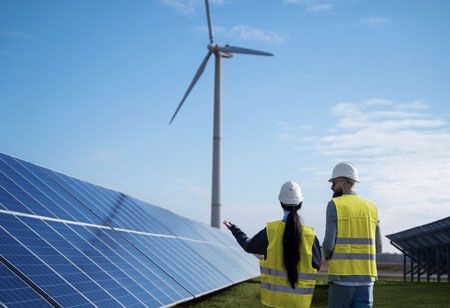By Global Consultants Review Team
 India’s Ministry of New and Renewable Energy (MNRE) is preparing to meet with solar and wind equipment manufacturers as it evaluates possible changes to the Goods and Services Tax (GST) structure affecting the renewable energy sector.
India’s Ministry of New and Renewable Energy (MNRE) is preparing to meet with solar and wind equipment manufacturers as it evaluates possible changes to the Goods and Services Tax (GST) structure affecting the renewable energy sector.
MNRE Secretary Santosh Kumar Sarangi stated that the ministry will review industry requests for GST rationalisation and submit recommendations to the Finance Ministry. The move is part of a broader initiative to ease financial and regulatory pressure on clean energy developers.
Sarangi also announced that solar and wind energy projects facing commissioning delays due to circumstances beyond their control may be granted an extension of the inter-state transmission system (ISTS) charge waiver, which officially ended on June 30, 2025. Project developers seeking the extension must apply to the Central Electricity Regulatory Commission (CERC).
While the ISTS waiver for solar and wind ended in mid-2025, it remains active for other key segments: until 2028 for energy storage projects, 2030 for green hydrogen, and 2032 for offshore wind.
The MNRE is also seeing increased adoption of Firm and Dispatchable Renewable Energy (FDRE) bids, helped by falling battery costs, which make hybrid energy solutions more competitive. Sarangi highlighted that hybrid solar-wind projects are gaining traction over standalone installations due to their ability to offer a round-the-clock power supply.
On the wind energy front, state governments are actively working to address on-ground hurdles through stakeholder consultations and the sharing of best practices to boost project development.
We use cookies to ensure you get the best experience on our website. Read more...